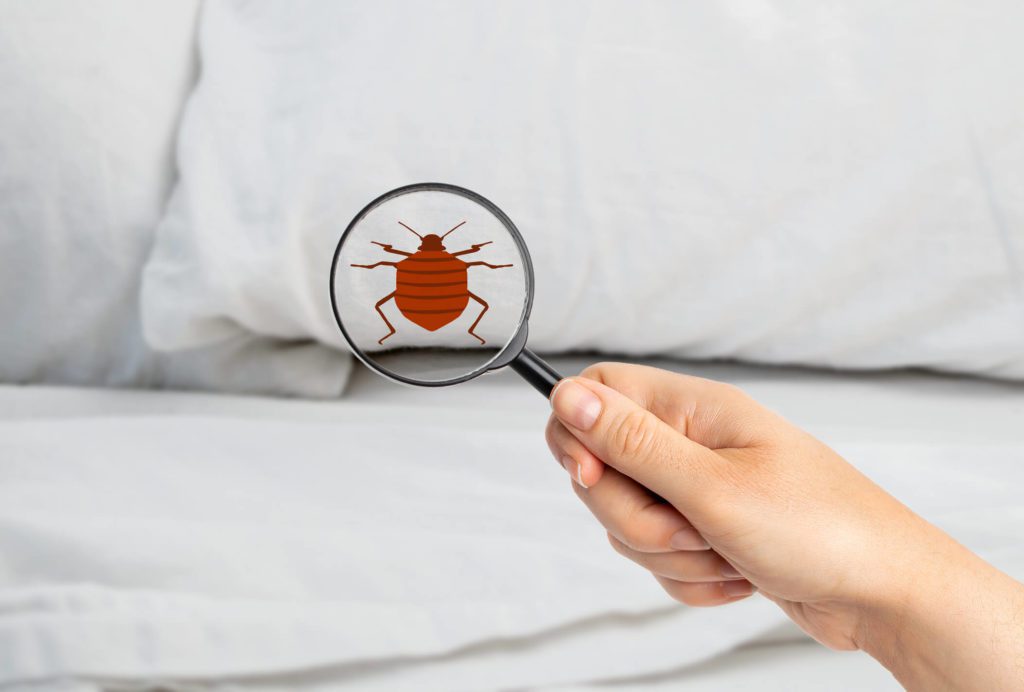Ideal Kings Pest Control Cincinnati: Premier Exterminators
Ideal Kings Pest Control Cincinnati: Premier Exterminators
Blog Article
Kinds Of Bug Control: Which Technique Is Right for Your Invasion?
When encountered with a bug problem, the option of an appropriate method for insect control is essential in effectively managing the situation. By discovering the various kinds of parasite control methods available, individuals can make enlightened decisions tailored to their unique scenarios, guaranteeing an extra sustainable and reliable outcome in pest removal.
Chemical Insect Control
Chemical pest control entails making use of artificial or normally derived chemicals to handle and eradicate pest populations efficiently. This technique is typically made use of in agriculture, forestry, and residential setups to fight a wide variety of bugs, including pests, weeds, and rodents. Making use of chemical pesticides can provide fast and targeted solutions to pest infestations, making it a prominent option for several individuals and organizations.
Among the vital advantages of chemical insect control is its capacity to quickly remove insects, lowering the threat of damages to plants, property, and human health and wellness. By utilizing specific chemicals that target specific pests, this approach can effectively manage invasions while reducing damage to valuable organisms and the environment when applied properly.
However, the use of chemical bug control additionally raises problems concerning possible unfavorable impacts on non-target types, water sources, and human wellness. It is essential to comply with safety and security guidelines, use chemicals properly, and think about alternate bug control techniques to minimize these risks and guarantee lasting bug monitoring techniques.
Biological Parasite Control
Organic insect control, also referred to as biocontrol, uses living organisms to decrease and take care of parasite populaces normally. This method takes advantage of the power of nature to manage bugs without the demand for synthetic chemicals. Biocontrol can include the introduction of natural opponents of the bug species, such as microorganisms, predators, or bloodsuckers, to reduce insect populaces. By utilizing the parasite's all-natural killers or virus, biological pest control supplies a eco-friendly and sustainable option to pest administration.

Mechanical Pest Control
Using hands-on and physical approaches to take care of insect populaces, mechanical parasite control offers a different strategy that does not count on using living organisms or synthetic chemicals. This approach includes using obstacles, catches, or other devices to physically discourage or get rid of parasites. By blocking insect access factors or setting up catches to capture them, mechanical pest control can properly reduce invasions without introducing chemicals right into the atmosphere.
One typical instance of mechanical insect control is using mesh displays on home windows and doors to protect against pests from entering buildings. This pop over to this web-site basic yet reliable technique acts as a physical obstacle, keeping insects out while allowing for proper ventilation. In addition, gadgets like mousetraps, fly swatters, and ultrasonic repellents drop under the mechanical bug control classification.
While mechanical bug control methods can be labor-intensive and call for normal monitoring and maintenance, they supply a lasting and eco-friendly solution for managing parasite invasions. By integrating various mechanical techniques, homeowner can develop an extensive insect control approach that minimizes reliance on chemical pesticides.
Physical Parasite Control

Some usual physical insect control techniques include the use of barriers such as nets or displays to avoid parasite entrance, catches to catch and eliminate pests, and hand-picking to literally eliminate insects from plants or frameworks. Furthermore, strategies like warm therapies can be utilized to regulate pests like bed pests by increasing the temperature to degrees that are deadly to the pests.
Physical insect control is particularly beneficial in integrated insect management (IPM) approaches, where multiple bug control approaches are integrated for reliable bug administration while minimizing the usage of chemicals. By using physical insect control techniques, individuals can efficiently resolve pest invasions with minimal ecological impact.
Integrated Parasite Administration
When implementing physical pest control methods as part of parasite administration methods, Integrated Insect Administration (IPM) becomes an extensive approach that leverages numerous techniques to properly manage pest populaces. IPM concentrates on lasting avoidance of parasites with a mix of biological, social, physical, and chemical tools tailored to details pest issues. By integrating numerous control strategies, IPM intends to reduce the risks connected with insects while additionally decreasing dependence on chemical services.
One key aspect of IPM is the focus on monitoring and evaluating pest populations to figure out one of the most suitable control approaches. This aggressive technique permits very early intervention and targeted methods, resulting in more effective pest management. Furthermore, IPM advertises eco pleasant methods by important source prioritizing non-chemical control approaches and just using pesticides as a last hotel.
Verdict

By making use of the pest's all-natural predators or microorganisms, organic bug control provides a lasting and eco pleasant service to pest management. - Kings pest control Cincinnati
Making use of physical and manual approaches to handle parasite populaces, mechanical pest control provides an alternative strategy that does not rely on the usage of living organisms or synthetic chemicals.An effective method to handling parasite populaces without depending on chemical or biological methods involves the usage of physical insect control strategies.When implementing physical parasite control techniques as part of bug administration strategies, Integrated Bug Administration (IPM) arises as a comprehensive strategy that leverages different methods to successfully regulate pest populations. Chemical insect control includes the use of chemicals, biological pest control makes use of all-natural predators, mechanical bug control involves physical barriers, physical pest control includes capturing or removing pests, and integrated bug management integrates several approaches for a holistic strategy to pest control.
Report this page